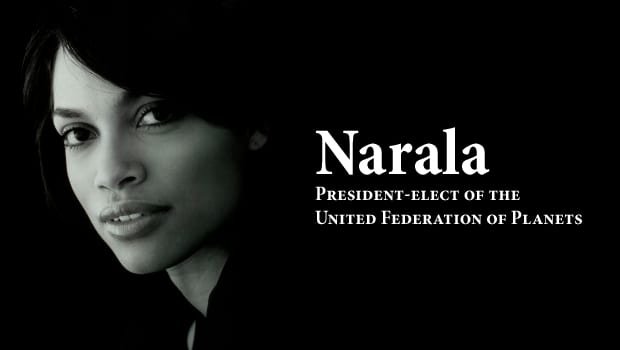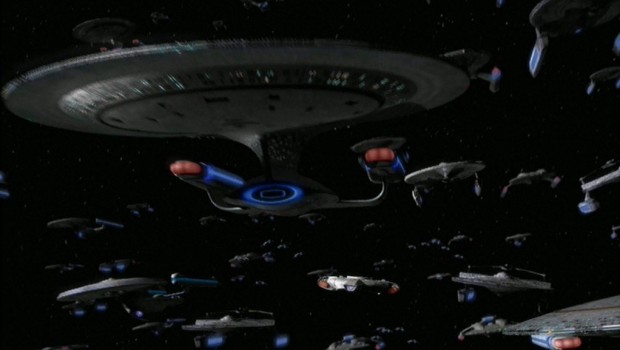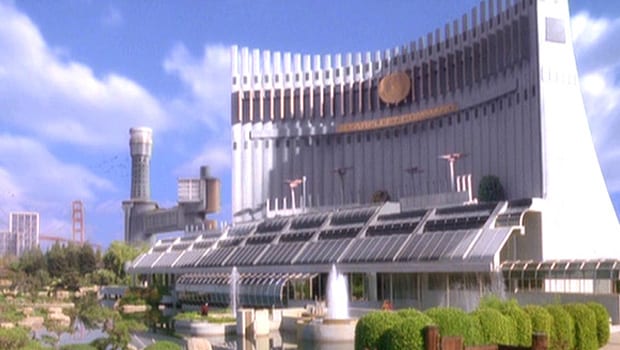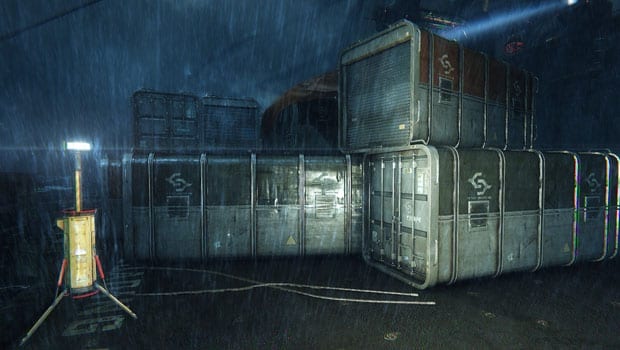
Starfleet Academy applications drop as civilian opportunities increase
SAN FRANCISCO, EARTH — Starfleet officials reported today that the academy received its lowest number of applications in nearly three decades, as the organization struggles to reshape itself and compete against a growing number of civilian alternatives for deep space exploration.
“I want to make clear that while we did have a lower than expected volume of applications, the number of applicants still exceeded the number of available spots,” said Arun Mehta, Dean of Admissions at the academy. “This year’s incoming class continues the proud Starfleet tradition of upholding the highest standards.”
Yet many others, from retired officers to politicians, warn that today’s report shows the urgency needed to revitalize the venerated institution.
“I’ve been saying it for years,” said Councillor Antasa Dros of Peliar Zel II, who disagreed with Mehta’s assurances. “Even if you have more applicants than spots, fewer applicants means you have fewer choices from which to pick the best.”
“Kevin [Steiner] got it half right. We need more ships, but even more importantly, we need more people to crew those ships,” she added, referring to the Senior Councillor from Terra Nova who ran unsuccessfully for president in last year’s election.
Some of her other colleagues on the Federation Council were less worried about the news.
“There’s this misguided view that what we need to do is rebuild the fleet back to the level we saw during the Dominion War twenty years ago,” said Councillor Mara Kell of Betazed. “No one should have expected the post-war Starfleet to maintain those kind of numbers. That was a time of war, and perhaps the most dire situation the Federation and the entire Alpha Quadrant faced since the Borg threat.”
Councillor Kell pointed to the experimental drone program currently being tested in the Bolarus system as an example of the kind of innovation that Starfleet must embrace as it heads into the next century.
“I’m not saying that’s the definite direction we need to go, but young people today are exploring other options if they wish to go out into the stars, and we need to accept the reality of a leaner, smarter Starfleet that can be more effective with its unique mission objectives.”
New Opportunities
One such young person who sought a different path is Tamra Dar, an aspiring astrophysicist and the daughter of a retired Starfleet commander who has decided to attend the Orion Institute of Cosmology instead of Starfleet Academy. The institute requires a year of field experience, which many students traditionally fulfilled by enlisting in Starfleet as a crewman, but Dar has spent the last five months aboard Viking One, one of three new civilian surveyors operated by the Orion Institute in a partnership with the Regulus III Science Academy.
“My father was crushed, but once I explained the experience I could get aboard the Viking, even he agreed it made more sense than spending a year as a sensor technician,” said Dar. “Sure, I’d be proud to wear the uniform, but out here, I’m working directly with professors and other scientists gaining experience I’ll be able to apply directly to my studies.”
In addition to increasing recruitment efforts by Starfleet to help bolster applications, past suggestions to relax restrictions on non-Federation applicants have reentered the discussion, with current Starfleet officers leading the charge.
“Today’s Starfleet is more diverse than ever,” said Commander Msafiri Bakari, a 2382 academy graduate now on deep space assignment in the Menthar Corridor. “I’ve had the pleasure to meet extraordinary people from all corners of the galaxy.”
Applicants to the academy from non-member worlds currently are required to obtain a letter of recommendation from a command-level Starfleet officer. While academy officials are hesitant to drop the requirement entirely, one proposal is to allow letters from non-Starfleet Federation officials, such as an ambassador or other high-ranking staff member from a Federation embassy, which would be more accessible to the typical non-member applicant than a Starfleet installation.
“One of my closest friends is from a non-member planet and is now a chief engineer,” added Bakari. “There are others like him out there, eager to share their talents and serve. We just need to give them a chance.”
Want to Write Your Own Star Trek Stories?
The Federation News Service is written by members of StarBase 118, a Star Trek play-by-email RPG running since 1994. Join us and create your own adventures in the Star Trek universe — all you need is an email address.
Join StarBase 118 TodayOr explore free Star Trek ebooks written by our community → trekstories.net
Stay Informed with Federation News Service
Subscribe to receive the latest updates from across the Federation.


 Previous Article
Previous Article Next Article
Next Article Narala wins 2392 presidential election
Narala wins 2392 presidential election  Revolutionaries capture fourth largest Inoxan city
Revolutionaries capture fourth largest Inoxan city  Starfleet Mission Updates: Stardate 239705
Starfleet Mission Updates: Stardate 239705  Nyberrite Alliance increases recruiting of ex-Starfleet personnel
Nyberrite Alliance increases recruiting of ex-Starfleet personnel  Starfleet Cargo Fleet celebrates 50th Anniversary with Warp 9 upgrade announcement
Starfleet Cargo Fleet celebrates 50th Anniversary with Warp 9 upgrade announcement  Orion piracy threatens to destabilize the Aavaro Wilds
Orion piracy threatens to destabilize the Aavaro Wilds  Borderland colony commemorates second anniversary
Borderland colony commemorates second anniversary